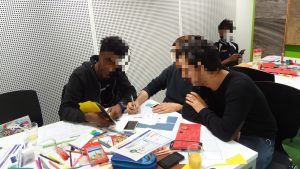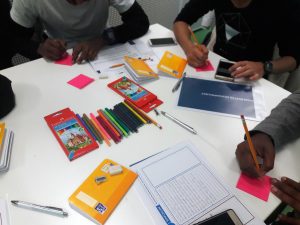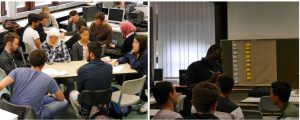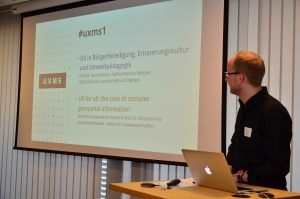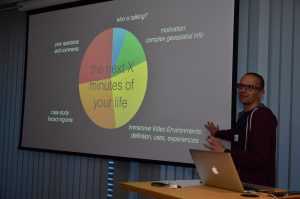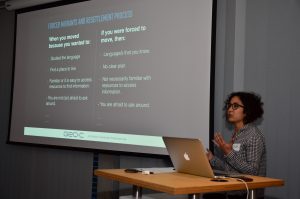The paper ‘Participatory Design and Participatory Research: An HCI case study with Young Forced Migrants’ (Authors: Ana Maria Bustamante Duarte, Nina Brendel, Auriol Degbelo, Christian Kray) has been published in the special issue in ‘Re-imagining Participatory Design’ from the ACM Transactions in Computer-Human Interaction (TOCHI) volume 25 issue 3.
Abstract: Participatory design (PD) in HCI has been successfully applied to vulnerable groups, but further research is still needed on forced migrants. We report on a month-long case study with a group of about 25 youngforced migrants (YFMs), where we applied and adapted strategies from PD and participatory research (PR). We gained insights into the benefits and drawbacks of combining PD and PR concepts in this particular scenario. The PD+PR approach supported intercultural collaborations between YFMs and young members of the host community. It also enabled communication across language barriers by using visual and “didactic reduction” resources. On a theoretical level, the experiences we gained allowed us to reflect on the role of “safe spaces” for participation and the need for further discussing it in PD. Our results can benefit researchers who take part in technology-related participatory processes with YFMs.
